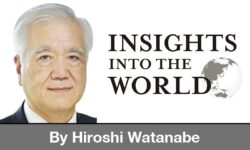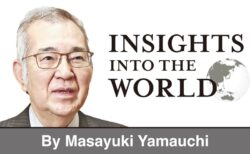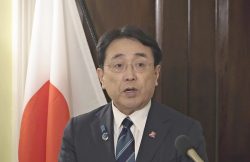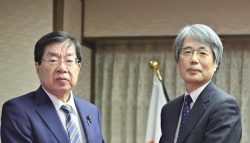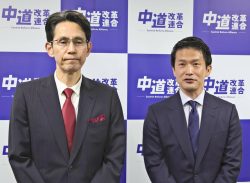11:00 JST, November 8, 2024
This autumn, while the summer heat lingered, the political sphere of the nation began to move swiftly. Shigeru Ishiba became the 102nd prime minister after clinching a come-from-behind victory in a Liberal Democratic Party presidential election, which was contested by a record nine candidates. He then dissolved the House of Representatives only eight days after the inauguration of his Cabinet on Oct. 1. In the Oct. 27 election, the ruling coalition of the LDP and Komeito lost its majority in the lower house. What will happen next is uncertain.
What do people expect from politics? Prior to the election, The Yomiuri Shimbun conducted a survey about which policies and issues the new Cabinet should prioritize. With multiple answers allowed, 88% of respondents cited “the economy and employment,” 75% “education and child-rearing” and 71% “social security.” This showed that voters were highly concerned about issues closely related to their lives.
The Japanese economy is saddled with a host of big challenges. How will the political world cope with them?
During the latest lower house election campaign, there were active debates on economic policies. Parties and candidates touched on almost all issues of strong concern to the people, as shown in the survey, but they stopped short of delving into solutions from a long-term perspective.
The Ishiba administration has set as a top priority “exiting from deflation,” a phrase that has also been frequently used by the business community and news outlets.
Inflation and deflation are economic terms referring to a rise or fall in prices. Japan’s core consumer price index, excluding fresh food, has risen for 37 months in a row since September 2021. It is particularly noteworthy that the core CPI growth rate has stayed above the Bank of Japan’s price stability target of 2% since April 2022. In other words, it is clear from data that the Japanese economy is in an inflationary period.
Increased prices of goods and services continue to add to the financial strain on people’s lives. At the same time, many small and medium-sized businesses are on the cusp of going bankrupt, as they are having difficulty passing price hikes on to their customers. Everyone in the country is therefore suffering from inflation, but the Ishiba Cabinet has pledged to “pull [the Japanese economy] out of deflation.” What on earth does that pledge mean?
Politically convenient phrase
The reason must be that “exiting from deflation” is semantically ambiguous, which makes it a politically convenient phrase. The word “deflation” has apparently deviated from its original meaning of a fall in prices and been converted to mean something like an economic slump.
If that is the case, the opposite of deflation cannot be inflation. Rather, it should be a “super-booming economy” in which people could feel a sense of elation. But is such an economy feasible? At any rate, the government should not be setting bubble-like euphoria as a political goal.
The government’s target of breaking free of deflation could help justify expansionary fiscal policies, such as supplementary budgets, and the Bank of Japan pursuing an extraordinary monetary easing policy. The issue here is not just semantics.
Of course, supplementary budgets are indispensable to support disaster-stricken areas. But Ishiba has floated a tentative plan to adopt an economy-stimulating package with total spending surpassing the fiscal 2023 supplementary budget. This means that the new prime minister is also just following in the footsteps of his predecessors, going back to the second administration of Shinzo Abe, in compiling one large-scale supplementary budget after another.
Compared with original full-year government budgets, supplementary budgets tend to be subject to less scrutiny. The government has pledged to rigorously carry out “wise spending,” but given what happened to the past supplementary budgets, that is likely to end up being an empty pledge.
There is one example in which the government can praise itself as a “wise government” — the promotion of inbound tourism. Annual consumption by foreign tourists in Japan has exceeded the ¥5 trillion mark and is showing signs of further growth. The keys to this success include, in addition to the private sector’s investments, the government’s measures to deregulate visa issuance and update data collection related to tourism.
This proves that it is ideas that are important, not money. Nonetheless, politicians tend to rely on fiscal spending.
The Japanese economy has almost eliminated chronic shortages of demand, a situation that no longer requires fiscal injection. Now it must ensure fiscal consolidation in order to prepare for future emergencies, by coping squarely with the fact that Japan’s outstanding public debt is more than double its gross domestic product.
The same goes for monetary policy. On Oct. 2, Ishiba met with Bank of Japan Gov. Kazuo Ueda and said afterward, “I personally do not consider us to be in an environment at present where interest rates should be raised further.” Raising interest rates is the proper way to eliminate inflation. Pork-barrel policies to support consumers’ spending, to ease the impact of inflation on their financial situation, are just an ad hoc measure.
The latest inflation rates are 2.4% in Japan and the United States and 2% in the eurozone, while the current benchmark interest rates stand at 0.25% in Japan, 5.0% in the United States and 3.25% in the eurozone. The Japanese situation with increased prices and lower interest rates is far from being seen as the “accommodative financial conditions” declared by the Bank of Japan. A spokesperson for the International Monetary Fund told a press briefing on Oct. 3, “Our advice is that the BOJ should […] gradually raise the policy rate.”
The macro tide has now changed from deflation to inflation, requiring the nation to tackle the monumental task of increasing wages beyond inflation rates. Instead of cutting back on costs, Japan now should rework its economy to be capable of creating new, high-value-added goods and services.
Seek long-term solutions
Needless to say, in a democratic economy, private-sector companies play the key role in raising wages beyond inflation rates. The government, on the other hand, has the responsibility to do what can only be done by the government.
In the economy-driven society in which we live, the market does not work well if left entirely to its own devices. Many issues cannot be solved by market principles alone.
Social security, about which people are highly concerned, needs to be reformed from a long-term perspective. This is exactly the kind of thing that only the government can address. Pensions, health care and nursing care require foundational reforms, not partial mending.
In 2025, everyone in the baby-boomer generation will become 75 or older — officially called “koki-koreisha,” or late-stage elderly people. We cannot wait any longer for debates about the future of the social security systems as a whole, including the ways the financial burden is allocated.
Politicians are keen to provide government subsidies to reduce gasoline and utility bills. But such a policy effectively promotes oil and coal consumption, which seems to run counter to decarbonization.
Policies that provide across-the-board subsidies to recipients, including high-income earners and companies with good performances, rely on questionable rationale. Measures to tackle the current high energy prices need to be thoroughly examined.
There is increased social interest in educational spending as the University of Tokyo’s recent decision to raise tuition fees drew public attention. Calls are increasing for tuition-free education, though they stop short of discussing who will bear the final burden. It is true that human resources are Japan’s most important asset. However, it should be noted that Germany and France are advanced countries in terms of tuition-free higher education, but that the people’s tax burdens there are higher than in Japan.
Today, the Japanese economy is in a situation where it requires neither an expansionary fiscal policy nor massive monetary easing measures for economic recovery. Now, when political stability is being shaken, is the time for the ruling and opposition parties to join hands to begin discussions about what policies are really needed for economic revitalization.
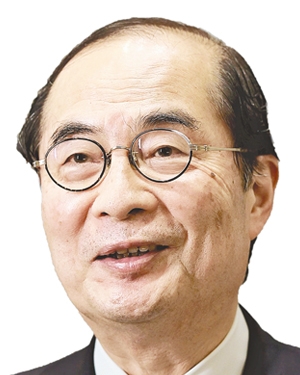
Hiroshi Yoshikawa
Yoshikawa is a professor emeritus at the University of Tokyo. He has served as the chair of the Fiscal System Council, an advisory panel to the finance minister. He is the author of “Reconstruction of Macroeconomics: Methods of Statistical Physics, and Keynes’ Principle of Effective Demand.”
The original Japanese article appeared in the Nov. 3 issue of The Yomiuri Shimbun.
Top Articles in Editorial & Columns
-

40 Million Foreign Visitors to Japan: Urgent Measures Should Be Implemented to Tackle Overtourism
-

University of Tokyo Professor Arrested: Serious Lack of Ethical Sense, Failure of Institutional Governance
-

Policy Measures on Foreign Nationals: How Should Stricter Regulations and Coexistence Be Balanced?
-

Greenland: U.S. Territorial Ambitions Are Anachronistic
-

China Provoked Takaichi into Risky Move of Dissolving House of Representatives, But It’s a Gamble She Just Might Win
JN ACCESS RANKING
-

Japan Institute to Use Domestic Commercial Optical Lattice Clock to Set Japan Standard Time
-

Israeli Ambassador to Japan Speaks about Japan’s Role in the Reconstruction of Gaza
-

Man Infected with Measles May Have Come in Contact with Many People in Tokyo, Went to Store, Restaurant Around When Symptoms Emerged
-

China Eyes Rare Earth Foothold in Malaysia to Maintain Dominance, Counter Japan, U.S.
-

Australian Woman Dies After Mishap on Ski Lift in Nagano Prefecture


